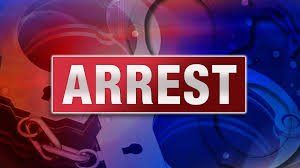An arrest occurs when the police take an individual suspected of a crime into custody and is no longer free to move around or leave. Getting arrested could be a scary and traumatic incident, particularly for people who have never experienced being arrested before. During your arrest, you must remember to stay as calm as you can and follow all the instructions given to you.
However, you should protect your constitutional rights, also called the Miranda Rights, by politely yet firmly refusing to talk about the situation while you wait for your defense lawyer to arrive. Once you’ve been arrested, you will be booked and held in custody.
What Happens to Your Case?
After the arrest, but before the trial, your case might go through the following stages:
· Filing the Charges: The prosecutor will decide whether to file charges against you and what charges are most applicable to your case.
· First Appearance or Arraignment: You will be formally charged. Bail and dates for future court proceedings may be set, and you can enter your plea.
· Plea Bargaining: This is the last stage in most criminal cases unless the defendant pleads not guilty. During this stage, the defense and prosecution will come to an agreement that you either plead no contest or guilty in exchange for dropping charges or reducing your sentence. Your attorney may also attempt to have your case dismissed based on the specific facts of your case and the evidence against you.
· Motion Practice: Lawyers will be able to make pretrial motions prior to your case going to trial. These can include motions to withdraw a guilty plea, suppress evidence, or change venues.
· Preliminary Hearing: It is during this stage that the judge will determine whether there was probable cause. Depending on the decision of the judge, the case may go to trial, or the defense and prosecution can try to renegotiate a plea bargain.
· Pretrial Conference: The defense and prosecution will meet to deliberate on the evidence before the trial.
Were You Lawfully Arrested?
It’s vital to keep in mind that police officers must, at all times, uphold your constitutional rights during and after your arrest. Most notably, your rights to reasonable searches and to only speak when your lawyer is present. If the police violate any of your rights, the court may dismiss your case due to an unlawful arrest. It’s likewise possible that the court may consider certain evidence against you inadmissible if it was obtained during an illegal arrest.
Think that Your Arrest was Unlawful? Seek Help from a Criminal Defense Lawyer Today
If you believe that your arrest was unlawful, call the Cohen Law Offices at 715-514-5051 or get in touch with us via our online contact form to arrange a free assessment of your case with one of our experienced criminal defense lawyers. Remember that probable cause isn’t always clear and could vary greatly based on the specific circumstances of any case. Your defense attorney might be able to refute the basis or legality of your arrest, including the evidence discovered during the incident.
When Results Matter Most, Call Cohen Law First.
We’re not just any law firm — we’re
Northwest Wisconsin’s trusted criminal defense powerhouse. At Cohen Law Office, criminal defense isn’t one thing we do — it’s
the only thing we do.
Focused on YOU. Fighting for YOU. Always.
Need Help After Hours? We've Got Your Back.
If you're reaching out outside of our regular business hours,
don’t worry — just
click here, and one of our dedicated team members will get in touch with you as soon as possible.


